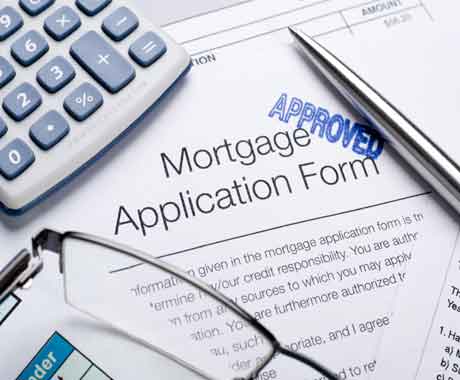 Getting a mortgage today is much more difficult than it needs to be. At least that's my perspective based on buying my fourteenth house in 2014, meaning I've got lots of experience with the home mortgage process.
Getting a mortgage today is much more difficult than it needs to be. At least that's my perspective based on buying my fourteenth house in 2014, meaning I've got lots of experience with the home mortgage process.
I just walked away from the first mortgage broker I was working with, a week before the scheduled closing (that story is another post). I didn't realize until after I made this decision, that I was partly to blame as I had not taken charge of my own home mortgage process. It won't happen again!
Just to be clear – I'm not, and have never been a real estate agent, mortgage broker or any other type of home professional. My experience comes from buying and refinancing 14 properties in 6 states. I also like numbers, starting with a Masters in Computer Science, 29 years in technology at IBM (used to mean I've Been Moved), an MBA and more than 10 years running small businesses.
Reflecting on the last month working with a national mortgage broker who made numerous mistakes, I've learned that the smart home buyer needs to take control of their home buying process. You have the most to gain or lose in this process and you need to understand that the mortgage brokers and banks have no vested interest in you as a client. We (our houses) are just a product they package with other mortgages, and sell to big banks or the government within weeks or months of your closing. Yes, a bank manager just told me his loan was sold before he made his first monthly payment.
Managing Your Home Mortgage Process
 . It's not perfect but it's a great starting point and I invite you to share ideas on how to make this better for everyone.
. It's not perfect but it's a great starting point and I invite you to share ideas on how to make this better for everyone.
First it's important to outline the goals behind the mortgage process paperwork. It's a good idea to think through who you'll be working with during the home buying process so you can keep copies of emails exchanged with them. You also want to keep a log of all documents, along with who you sent them to and the date. That's because people, specially lenders, seem to misplace documentation frequently and if due dates are missed, you'll need to prove you provided the documentation on time.
- Show you have the assets to cover the down payment and closing costs.
- Demonstrate your ability to pay the mortgage, property taxes and insurance.
- Document your credit worthiness based on past payment history.
- Provide documentation stating the house value supports the loan amount.
Home Mortgage Process – Savings
Buying a house is a good investment over the long term. Buying a house also brings more responsibility than you have as a renter. My belief is saving up a 20% down payment is the best way to prepare yourself for the responsibilities that come with home ownership. It's pretty simple – eating out is optional while replacing a hot water heater is required.
 As part of the home mortgage process, you'll need to provide the following documentation. You'll also need to document where the money for your down payment and closing costs comes from, to make sure it's your money. For my loan application, this involved 7 documents.
As part of the home mortgage process, you'll need to provide the following documentation. You'll also need to document where the money for your down payment and closing costs comes from, to make sure it's your money. For my loan application, this involved 7 documents.
- Last two months of bank statements – all pages, and all accounts being used to support the loan.
- Last two months of investment and retirement (like 401K) accounts – all pages, and check with your lender if some of these accounts only provide quarterly statements.
Home Mortgage Process – Income & Tax Returns
Next you've got to show enough income to cover all of your home related expenses, plus other debts that show up in your credit report. Lenders will calculate your debt-to-income (DTI) ratios so check yours out using Zillow's DTI calculator. Ideally, your front-end and back-end debt ratios should be 28 percent and 36 percent or lower.
Here's the documentation you'll need to provide on your monthly income. The tricky part is not only do you need to provide current pay stubs, you also need to provide year end W2s that support your last 2 years of income tax returns. And if you're relying on child support, alimony, pension or social security payments, you'll need these documents too. My loan package included 10 documents to prove income.
- Last 30 days of pay stubs to show your stable income, and I'm guessing if you work on commission and your paychecks vary widely, you probably want to provided 2 or 3 months history.
- Last 2 months of pension, social security and any other retirement income statements.
- Award letters for pensions, social security and disability income are also needed
 The home mortgage process also requires documentation showing consistent income on your tax returns. Because I took an extension on filing last years taxes, I had to go back 3 years and there were 17 documents required.
The home mortgage process also requires documentation showing consistent income on your tax returns. Because I took an extension on filing last years taxes, I had to go back 3 years and there were 17 documents required.
- Last 2 years of federal income tax returns.
- Last 2 years of W-2 forms, which is how your income as an employee is documented.
- Last 2 years of 1099 forms, which documents your income as a sub-contractor or pension payments.
Home Mortgage Process – What's the House Worth?
Not only do you have to qualify for the loan, the lender will order an appraisal to make sure the price you've agreed to pay for the house is true market value. That's why most contracts to purchase a house include contingencies on getting your loan approved, along with a home inspection.




Leave a Reply